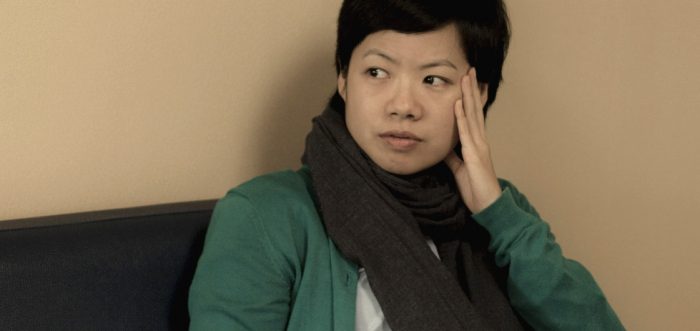Anocha Suwichakornpong’s sophomore feature By the Time it Gets Dark is underpinned by a subtle complexity. There’s a sense of space framing the characters – from how they interact with one another to how they approach and consider their own existence within the broader world – and this inherent distance is reflected in the relationship between film and viewer. The work explores cinema’s capacity to navigate trauma. Earlier scenes are centred around a filmmaker attempting to assemble a film about an older activist who witnessed the 1979 student massacre at Thammasat University.
From this opening, focused on a painful part of Thailand’s history, the film shifts gears, moving from the Nan region to Bangkok, though its atmosphere lingers. The filmmaker’s conflicted relationship with cinema remains pronounced, that irreconcilability of the present and past, of art and the particular history in question. The film moves between high-rise apartments, editing rooms, hotel swimming pools, it floats above cityscapes, sits in on a seaside dining experience, partakes in an absurd music video sequence and concludes with one of the most impressive endings to a festival film in recent memory.
It’s been one of the films I’ve thought about the most over the last year, as a work that has constantly grown on me with distance. I first saw the film at Locarno Film Festival last year and was fortunate to revisit the film at Sydney Film Festival last month. I spoke to Anocha last year, hours before the world premiere of By the Time It Gets Dark (Dao Khanong). We caught up at Sydney Film Festival to discuss how her own relationship with the film has changed since that premiere, the way distance manifests throughout the work, and the way that carries itself into the viewing experience.
Note: Throughout the interview this film is referred to as both its Thai and English titles. Its Thai title is Dao Khanong, which is named after a suburb in Bangkok.
So you’ve been on the road for almost a year with the film now… almost?
Yeah, almost. Because it started, the last time I saw you… which was August?
Yeah. It’s come a long way I guess.
At one point I thought that it had stopped already but this month, somehow, was very, very intense. But a couple months ago, yeah it was a little bit less so.
A lot of the time, the films that play in the competition at Locarno end up coming to Melbourne, if they come to Australia at all – and that’s always stretching the film into a year of playing at festivals. I think this year is a bit of an anomaly, or hopefully, the start of a new trend for Sydney Film Festival. I don’t remember a time when they had this large of a selection from the Locarno competition. There’s your film, Wet Woman in the Wind, Mister Universo –
– and The Ornithologist.
I watched that again here, actually. When there’s such a frantic pace at film festivals, where it can be quite easy to glaze over films in a moment, there’s something rewarding in the process of returning to a film in a cinema and engaging with it in a completely different way.
Yeah, it is good. I wish I’d get to do that.
It would be quite difficult with the schedule you’re on at the moment. How many times have you watched your own movie?
I don’t want to count how many times I’ve watched my film.
I assume that experience would transform rather substantially once you’re seeing it screen within a cinema, though. We’ve done multiple interviews with filmmakers over the last few years but they’ve often taken place with some distance between them – normally for different films. We first spoke a few hours or so before the world premiere of By the Time It Gets Dark. In terms of discussing the processes and inspirations surrounding the film, I thought that was quite a thorough chat. With that in mind, I wanted to talk more today about how your engagement with the work has evolved in the last year. How different does it feel to be talking about your film, after almost a year of travelling with it?
Of course, it feels very different to be talking about the film now. Back in August, that was when I had just finished the film. I was still very involved with it in my head. I literally just finished the film maybe two or three weeks before the preview. It was very hard to talk about the film back then, because I didn’t have a distance. From a distance, now, I think it is a little bit easier. This is also because I’ve been getting many different kinds of feedback. Both good and bad.
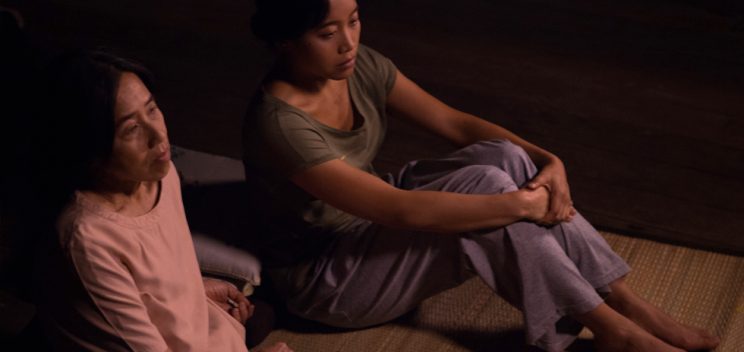
Distance manifests itself in a way that frames a great deal of your film – and that stood out to me a lot more last night than when I first watched it. Whether it’s the distance between us and the characters, or the detachment they have with one another…
Do you know that… I’m reminded of an Angela Schanelec film. Did we talk we about that?
The Dreamed Path?
Yeah. Did we talk about that in the last interview?
I don’t think we did, no. I don’t think I had seen it at that point.
It was the one film that made quite an impression on me [at Locarno] but I haven’t seen it since. I have seen her at some festivals, we’ve been going to some of the same festivals.
After Locarno, she would have gone to Toronto?
Yes. I met her there. In Locarno I didn’t get a chance to talk to her, but in Toronto I did. I went up to tell her how much I liked her film. We were both in Mexico City, as well, at FICUNAM. She was actually having a retrospective there. But, yeah, just to go back… I think I got what you mean, but maybe not from my own film. I got that feeling from seeing her film.
I often think about both your film and hers as having quite a bit in common in that sense, in the way in which they both portray human relationships. Maybe Schanelec is more austere in how she conveys it, but I think it is dealt with in a less immediate manner in Dao Khanong. Sorry, I’m going to keep calling it that here since that was the first title I saw it under.
Yeah, yeah. It’s the Thai title.
The English title, it’s named after a Yo La Tengo song isn’t it?
Yeah.
I thought that the detachment we were talking about before surfaces quite poignantly in the scene where the older activist questions the filmmaker, asking her why she wants to make a film about her. I feel like that back-and-forth is so revealing, as it pushes back against the assumptions around meaning and value the filmmaker has made. I know this isn’t an autobiographic or a biographical work, but I was interested in whether you felt a similar sense of frustration and conflict around ideas of significance and validity when writing the script?
There were so many starting points. Initially, the script had this kind of narrative between the filmmaker and the writer-activist. I was writing scene after scene, and many were about them. I knew at one point that this was going to exhaust itself. It was just a matter of when. I didn’t want to make a film that would be a kind of retelling of these incidents, or about the process about making this particular film. That should be part of it, but it shouldn’t be the whole film. That narrative has to die down so the film can shift into another narrative.
The lack of bonding between the two characters provides the seed for this narrative to die down. The scene when the light goes out, when we see that, for the first time, the filmmaker is revealing more of herself. That the wall has come down, but in the moment when she’s singing and then the lights come on, the activist says that she’s “going to bed” and the filmmaker feels shut out somehow. So there is a lack of bonding between them. I feel like that is already the beginning of the end of this narrative.
It’s almost as if I had to establish the first part in order for me to go on with the second; focusing on the many characters being distant and not realising the existence of one another. I felt that I could not just go directly into that area without establishing this form of a more conventional narrative first.
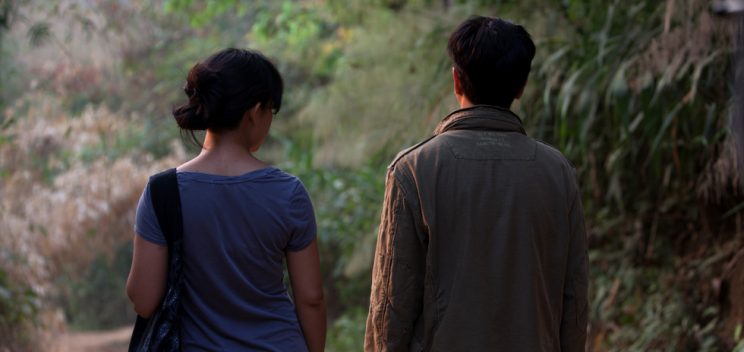
It’s fascinating how the film begins with this director trying to make a film without being able to realise that initial thought. As I watched your film again I kept focusing on the different instances throughout where characters are in situations where something isn’t fully realised.
It’s to do with the limitations… of what cinema can do: in terms of dealing with trauma – asking if cinema, as an art form, as a form of representation, can deal with real human pain. Because we’re talking about the real lives of real people who lived through this tragic incident. And of course you know the character is played by an actor, but I was dealing with a subject that matters to a lot of people. People whose lives have changed because of this incident. So it was something that I was also grappling with, I guess. If cinema could sufficiently deal with real human pain. With the character of the filmmaker – and I said this in yesterday’s Q&A – I already had someone in mind to play this character, and I changed the character a little bit to include elements from her real life. Though, of course, there was a part of me in that character, but it wasn’t written to represent me. She herself is a filmmaker, my friend who played this character.
The initial sequence attempts to navigate or, at least, it begins to raise the issue of trauma. It becomes more abstract over the course of the film, as something moving as an undercurrent throughout the work. Even if it’s something as sterile as people sitting in an editing studio… there’s this very powerful sense of pain, which is amplified in a strange and unexpected way, often through the lack of an emotional response. When Peter dies, they’re all just kind of sitting there. It’s a very unique kind of way to capture responses to grief. It seems absurd, but it also feels completely rational; I feel like it’s such a believable kind of way in which people can react to total loss.
It’s funny you mentioned that, because I was afraid that it would come across as too heartless – in this scene. Before we locked picture I showed it to someone who is involved in the film industry and they said “But you know, this is quite real, actually if it were me, I would probably say something like that: ‘Thank God we already finished shooting him.” When I was making the film, I didn’t realise, to be absolutely honest, that I was also quite critical of cinema. That never occurred to me. Even, I thought I was making a film that was a love letter to cinema. Once the film was finished, and quite a few people had seen it, there was one comment that I kept getting: “You made cinema look quite bad, in a way.” I thought oh, okay… I was not aware of this. I thought I was asking questions of what cinema could do and could not do. Somehow, in that process, I don’t know… the dark side of cinema emerged.
I think that’s a great way to put it. I remember the first time I saw the film, I reacted more to situations throughout – at times it was surreal, at others quite painful. But I felt like that there was this deeply dark undercurrent when I watched it last night, and I had a more emotional response to work. There’s never a real crisis in the film, but – between the detachment the characters have with one another, alongside the manner in which the work has this dialogue within itself about the worth of cinema – there’s this immediate sense of tension.
But at the same time, you know, I really want to believe in cinema; which is why I made this film. I want to believe in what cinema is capable of, the possibilities of cinema. But in the process I discovered the limitations also.
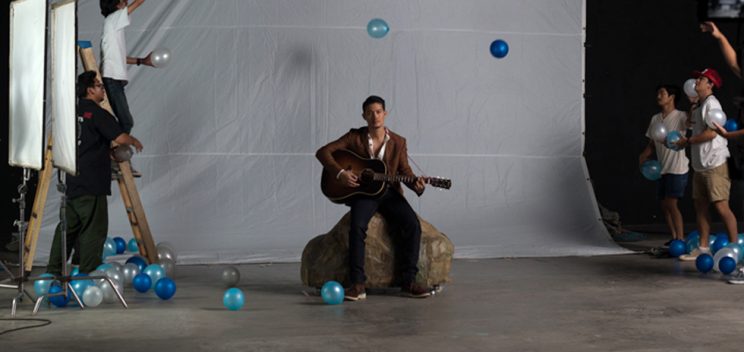
A lot of the film is concerned with the process of filmmaking, and you’ve spoken a lot about how the work transformed into the final product. Do you think about the film as something in the past now, or is it still part of the ongoing process that informed it?
I don’t think it’s entirely in the past yet. When it premiered in Locarno last year, it was very immediate, and, of course, it’s less immediate now. I find that, for better or worse, it’s hard for me to keep a distance from it. Not only because I still travel with the film and I still have to talk about the film every now and again, but… it’s something that I think is quite strange with this film, because it involved so many people that I knew, that were my friends, and I really feel that the film is still… it’s almost as if the lives of the people in the film continue to exist in real life, for me. So there is a continuity of life after the film ends. And that is also my life. You know?
Yeah.
I’m living in it. So it’s a bit weird in that way. It’s more specifically to do with the second part of the film I would say, because it is about contemporary Thailand; and also because it’s about the film industry. Not the “industry”, but more the film scene, which I am a part of. So it’s almost as if I’m living that life. Where the film ends the real life continues. Yeah.
Are there sections of the film where you were communicating to that community specifically? A more personal approach leading to elements less likely to be noticed by an international audience?
Yeah. I think people in Thailand – not everyone, but the people who knew me – when they watched the film, I think they feel that it was really my life. It’s almost like I documented the lives of other people, and again, I’m not talking about the first part of the film, but more like the second part. It’s more like I made a documentary, even though it wasn’t one.
Does having that element of the present embedded in this film influence how you’re thinking about your future work, as a filmmaker?
Of course, yes, I have to think about my next film. But seriously, at one point, I thought maybe I would not get to make another film. When I was making this one, it occurred to me many times that this would be my last film for several reasons. One was that it was so difficult to get made, and I was running out of resources. Now that the film is finished, it’s doing okay, it has its own life, and that is something that is sometimes independent of me. But yeah, not all the time. So, I’m looking into producing and writing my other films… but nothing has really materialised.
Actually, I’m revising a script that I wrote 12 years ago. It was actually the very first feature I wrote, even before Mundane History. I kept pushing it back, because I didn’t want it to make it my first film, because I felt I wasn’t ready. Then I made Mundane History and I still felt that I was not ready, that I needed more time. Then I was developing By The Time It Gets Dark. Now, I’m kind of going back to it – except it was written 12 years ago now, so a lot of things have changed. I have changed as a person but also as a filmmaker. So there are things to be considered. I want to try to retain some of the elemental spirit of the original story, but I know and I’m aware that I’m not the person I was 12 years ago so… it’s got to be revised a lot, and I think this will be for the better.
Have you begun any production for this, or is it still very much a work you’re still thinking about?
No, but to be absolutely honest, I feel like this film, By The Time It Gets Dark, is going to have a special place for me. Maybe because I was really invested in the film, in every way possible. Emotionally as well intellectually, so… it’s almost as if I took a chunk of my life and I put it away. And it’s kind of like a time capsule. Even though I didn’t act in the film. Maybe 10, 20 years down the road, I’ll look back on it and I’ll be like, “Okay, this was me… this was me at one point in time.”
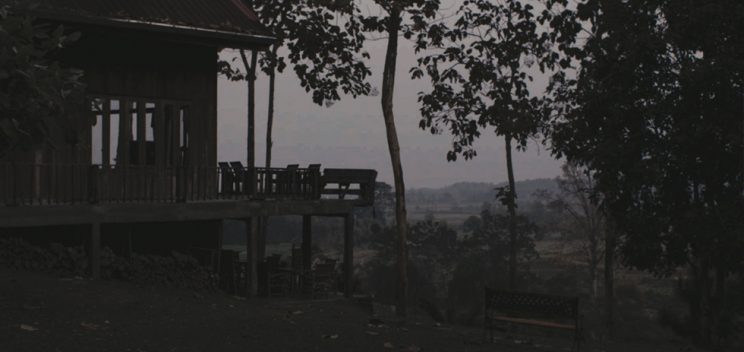
I think Mundane History is a very intimate work, but there’s more of a familiar sense of form. It’s a debut feature, and I imagine it would’ve been difficult to go out and be as experimental with form as you have in Dao Khanong.
This film, on the surface, it doesn’t seem to be experimental. If you don’t watch it you would might think that, just because it’s a feature film. People don’t really experiment that much with features because of commercial reasons or whatnot. There are like commercial considerations to be made because it has to be seen by… an audience, that are willing to pay to see a film.
I think people were, especially in Thailand, quite confounded in the beginning; that it was actually much more experimental than it appeared to be. I think I really took a risk doing it. No, I wouldn’t even call it a risk, because I had to do it. I felt compelled to do it. Only it was not a choice, I felt like I wanted to experiment with the form. The narrative form but also with cinema. At the same time, it was a personal project that just got bigger than, maybe it was supposed to be, I don’t know. Now it’s a film that is seen by many more people than I had originally thought would see it.
I assume the work has been well-received, though I haven’t read a huge amount written on it. I’m probably coming from my own response to the film, but at the same time, I spoke to a few friends after the screening last night who took a lot from the film. What have you thought about criticism around the film?
Well, the critical ones are usually more about how cryptic the film is – which is fair. I mean I’m fine with that. Like I said, I think it was a personal film that somehow turned out to be bigger than I thought.

It’s a film that I found to be more rewarding with time, so cryptic isn’t the worst criticism to have, since it’s open-ended to a point – it leaves space for the viewer to reflect more on the work, since it isn’t some sort of flat out rejection of it. Reacting to a film with an immediate judgement is a particular style of – or approach to – film criticism that I’m often perplexed by. The other day, when I saw The Ornithologist again after months away from it, I realised something new: how early he was inserting himself into the film, which was something I only noticed towards the end the first time I saw it.
You know actually, in this, I’m in this, my film too.
You’re in the movie?
Yeah. But you don’t even see me.
Really?
Because I’m there for like… it’s too short to be picked up on.
That’s funny. When is it? Or is it top secret?
No, it’s not secret. It’s right around the shift in the narrative, when we have just left the filmmaker and have gone onto the second narrative. There’s a montage, and yeah, there’s me in there.
Is that in the hotel? The montage of leisure activities?
Just before. Before we go to the tobacco basically.
Right.
No, no, but I mean no one will see me. You blink and you miss me.
That’s funny. I’ll have to rewatch it at some point.
But anyway, that’s kind of beside the point.
I think what I was getting at was, this time around I was a lot more aware of how many scenes were shot through something.
In my film?
Yeah. Either through a pane of glass or from the other side of something. I didn’t pick that up at all the first time. Not for every scene, obviously, but it was clearly recurring… Whether it was in the first section in Nan?
Yeah, Nan.
And then the city.
Bangkok.
There’s a shot, maybe from a balcony into the room, or when Peter is swimming, there’s a shot from the inside of the hotel. Was there a particular impetus or motivation for this, or something particular you hoped to provoke in the audience?
It gives the feeling that we at times spying on them – these people, the characters – a little bit, but I think it has to do with the distance. I think it is very different from Mundane History in that sense. With Mundane History I used a lot of close-ups, and with this film not so much. The camera, like you said, tends to be shooting through some hole or some sort of foreground, like the camera is hiding a little bit. I think it’s not specifically designed to be spying on these people, but more about some kind of distance, to not be so up front with the characters. I think I wanted the film to have this overall feeling that we, the audience, have the overall picture of their lives; and how they connect or don’t connect. But the characters themselves, they don’t have this privilege.
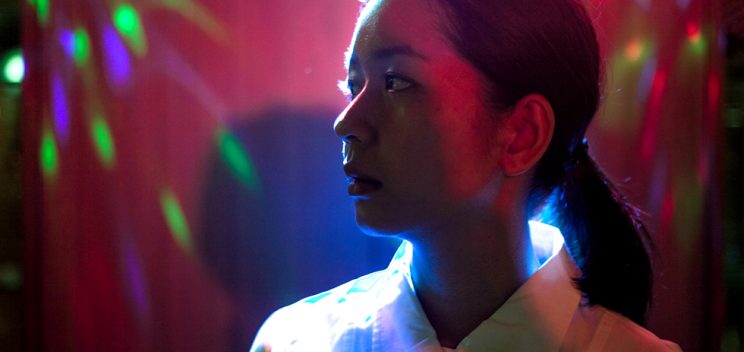
The film is called Dao Khanong in Thailand, I noticed there’s the scene, before Peter dies –
– the car accident.
Yeah, and he takes an exit off a freeway, turning toward Dao Khanong. Is that a suburb?
Yeah, it’s in the suburbs of Bangkok. It’s actually not a very thriving neighbourhood, and it has a lot of factories. I have to say that I actually picked the name Dao Khanong because it’s made up of two words. Dao, which means star. Star as in planets, but also actors. Then Khanong, which is wild. So it means ‘wild star’, which is… yeah. But it’s quite a weird name for this neighbourhood because it’s not glamorous at all. The juxtaposition of these two words is also quite strange. I always see the sign on the expressway, so many signs pointing to Dao Khanong. If you drive on the expressway in Bangkok you will see it. There’s not much there at all. It’s actually more like a place that you go through, especially if you want to go to Hua Hin, which is kind of like a upscale resort town for Bangkok people. They have to take this route with the sign pointing to Dao Khanong, like Peter did in the film. For me it actually… it doesn’t have such a huge significance.
There was an audience question last night that compared your work to Apichatpong [Weerasethakul], which is something I’ve even seen critics write in reference to the film, which is something that seems to happen a lot with films coming out of Thailand – even if they have very little in common with his work. Kirsten Tan has a film at the festival, and I even managed to find a review of that – comparing a scene that some neon lights in it to Apichatpong.
Really? It cannot be more different.
The last time we spoke, I think I asked about those comparisons to some extent. I believe I was curious about how you engage with that scene of filmmakers in Thailand, and having those comparisons made. After watching your film last night, and hearing that question, I was just… I’m not sure – I think it’s that I don’t really find any points of similarity. Do you feel people will continue to react like that to contemporary cinema coming out of Thailand, especially when it comes from the more experimental wing?
I think maybe the only way for this issue to resolve is probably for, first of all, to search for other people: the filmmakers. Thai filmmakers’ work too. I’m not saying my work, but other filmmakers. Maybe I mentioned this guy to you, Nawapol, did I? I’m not sure. He’s like a younger generation –
What’s his name?
Nawapol [Thamrongrattanarit].
I don’t think I’m familiar with him.
He made a couple features already, but his last one is more like a commercial film. The first one was called 36, then he made one that was called Mary Is Happy. They’re not super art house, but they’re quite faithful, his films. So he is from a younger generation than myself, and I feel like if we have more younger filmmakers that can emerge, then this issue will be resolved. But until then, I don’t know how.
It sounds like it is a rather difficult atmosphere to foster a more experimental film scene in Thailand too, from how you’ve described working there: with those difficulties around funding and support.
Yeah, it’s not easy at all. I was lucky that I managed to find funding for this film, even though it took six years. Eventually I did manage to get a lot of grant money; money that I didn’t have to pay back. But maybe it’s just the one time I could do it. I get compared a lot of course with Apichatpong, maybe because my name is quite similar to his too. Like I said in the Q&A last night, of course, he’s a great filmmaker.
Yeah, I imagine it would be an awkward situation, where you might not be inspired by his work – but articulating that could come off as detracting or whatever. Last night someone else mentioned Bresson in relation to your film. I feel like I’ve seen that written a lot about almost every film where the characters perform detachment in any way. I think I saw about five reviews of The Dreamed Path, that were centred around the thesis that “the performances are Bressonian”. I think the performances in The Dreamed Path are more explicitly in that frame, maybe?
Yeah, this style of acting. The result was like the models, right? He called them not actors but models. With this film, By The Time It Gets Dark… when I was prepping it with my cinematographer, we didn’t reference other films. We’ve worked together for many years now so we have an understanding. It’s very easy to work together. Of course, maybe was first starting out, we would quite often look at this and that film, to like, “Oh this is really nice camera movement” or what not. But we haven’t done that in a long, long time.
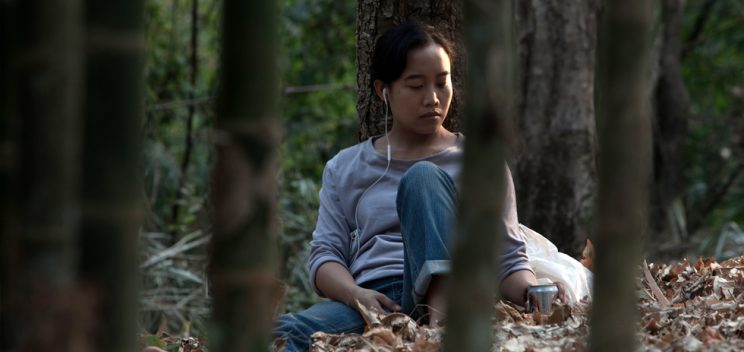
Is there anything you’ve seen in the last year that you’ve liked as much as the Schanelec?
I was very impressed with The Death of Louis XIV. Have you seen it?
No, actually.
It’s completely different from Dao Khanong. And I think that’s me when I see something that I really like, or I’m impressed with. It’s not because its similar to my film, because usually it’s not. But I was quite blown away, because it’s so different.
I feel like we’ve spoken about the film quite a lot, and I’m interested – as broad as it is – in how you view cinema; both as a form and on a personal level?
I don’t know… because I’ve always been interested in cinema as an art form. So many times I’ve made my films relate to cinema. I had thought that maybe the next one would not be, that it should be a more straightforward narrative. That in a way, would be a challenge for me… to tell a straightforward narrative; not so reflexive, not meta-cinema.
Like a really dialogue heavy comedy.
[Laughs] Yeah, romantic comedy. But I don’t know if I can do that, even though I actually thought about it. I’ve toyed with ideas that could be my next film; the one that I wrote the script for 12 years ago. I already started to get ideas of how it could be transformed, and of course, the idea of meta-cinema keeps coming back. I don’t know if that’s a good or bad thing. It’s like, “Should I be doing the same thing over and over again?” But I feel that it’s my life. So I want to put my life in it, so it reflects that. I’m buzzing off the film as well, so it’s… again, it’s a question that I’m grappling with. When is it going to be enough, this process?
Relating and reconsidering a script you wrote 12 years ago must be quite an experience too, where there are probably quite a few stark changes that you’re coming face to face with.
I definitely don’t want to make the film that I intended to make 12 years ago now. Definitely not. I would not be able to stand watching it, I think. Seriously. But then again, once I put it like this, it’s kind of scary because what about the films I’ve made now? What, 12 years down the line will I look back at Dao Khanong, and be like, “Oh my God”? We’ll see.
I hope not.
I hope not too.
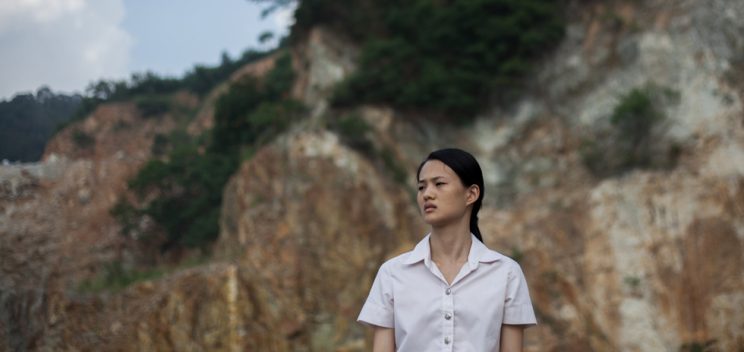
I think there’s definitely something about the work you’ve made to date that has a certain patience, and engages with cinema in quite a unique and powerful way. Of not releasing something that you’re going to hate 10 years later. Like you don’t hate Mundane History, right?
No, no. It’s okay but it hasn’t been 12 years yet.
True.
No, but I keep thinking that I may not continue making films. I keep thinking about it.
But you do this, this is what you did with Dao Khanong. You were like, “I’m not going to make films.” Then you go and make that one.
Yeah I think I have this love-hate relationship with cinema for sure. It’s almost like a jog. I want to quit it sometimes.
What would you do if you quit cinema?
I seriously don’t know, which is why I’m still doing it.
